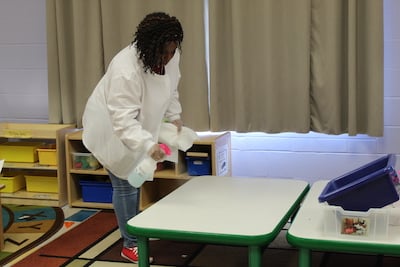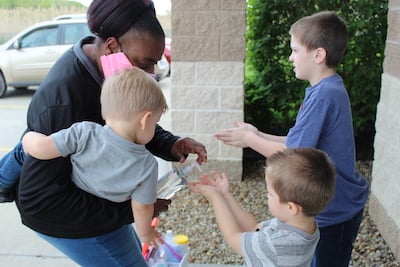 Summer learning loss can take place when children are out of school for summer break and don’t participate in educational activities that can keep them intellectually stimulated and learning.
Summer learning loss can take place when children are out of school for summer break and don’t participate in educational activities that can keep them intellectually stimulated and learning.
This isn’t a new concern (Horizon Education Centers provided tips to combat this in 2018). Having said that, with school students shifting to online learning during the second half of the 2019-2020 school year, they may be more vulnerable to learning loss now than in previous years.
So, during the summer of 2020, it’s crucial to provide your children with opportunities to learn and grow for a successful 2020-2021 school year.
What Research Shows
THEJournal.com shares research that used previous summer learning loss data to predict how COVID-related school closings could cause some students to:
- return to school with “less than 50% of the typical learning gains”
- be a full year behind
- struggle more in math (as compared to reading)
Researchers are using the term “COVID-19 slide” to show how some students can be struggling with the effects of summer learning loss because of the late winter/spring school closures. Others are referring to this as the “second-semester slide.” No matter which term you use, when you add the loss of learning that often takes place during the summer months, you’ve got a double whammy.
Parents and Child Care Centers Can Tag Team for Success
The good news is that there’s plenty you can do to help your children adjust to the unusual situations in 2020 and keep them learning and progressing. To make that happen, first choose a child care center that shares this philosophy (Horizon Education Centers does!). Then, create fun learning opportunities for your children at home that will supplement what they’re experiencing at the center.
To get started, here are three fun ideas that your children can enjoy at home this summer—and here are some more.
More Helpful Insights
OxfordLearning.com suggests that in a typical year, it takes about two to three hours of focused learning each week to prevent summer learning loss. Coupled with COVID-related shutdowns, that figure may need to be boosted—but the point is that this learning loss can be addressed.
Recommendations on this site include:
- Have your child read four to five books over the summer. Allow him or her to “ditch the assigned reading and choose books that spark interest and excitement, transforming reading from a school assignment to a fun and engaging summer activity.” Between the books shared at child care and those read at home, going beyond five books is not only doable but will keep their reading skills intact.
- Strategically use technology. There are wonderful educational apps that help children develop critical thinking skills and solve problems. Different apps focus on different skill sets, so you can choose ones that are appropriate for his or her grade level.
- Have your child create an age-appropriate journal. This can focus on birds, plants and rocks seen during the summer, as just one example. Younger children can draw pictures and get help from parents to label their pictures, while older children can write stories about what they’ve seen and learned.
- Enjoy family nights that could include playing Scrabble together, making recipes where the children measure and mix, planting a vegetable garden, and so forth. Look for teaching opportunities in each activity without diluting the fun.
Here's another idea: Take pictures of summer learning activities enjoyed by your children and make an album, either in a book or online. In future years, this album can remind your children how adaptable, flexible, and creative they really are!







